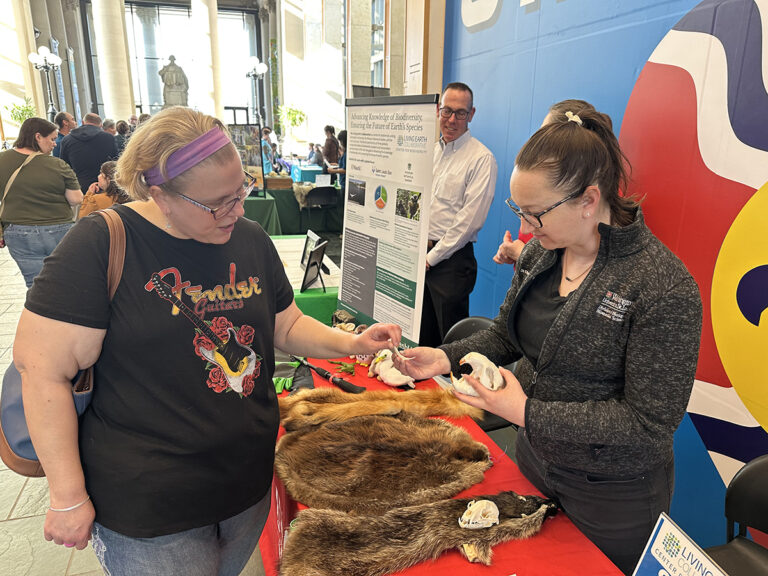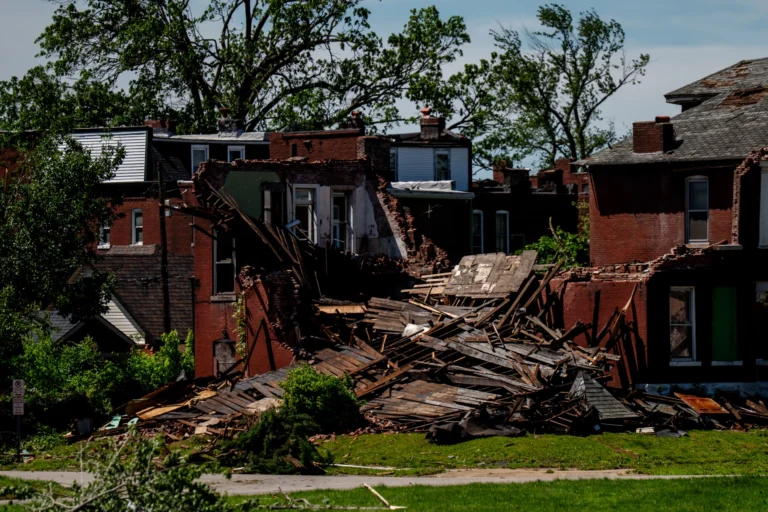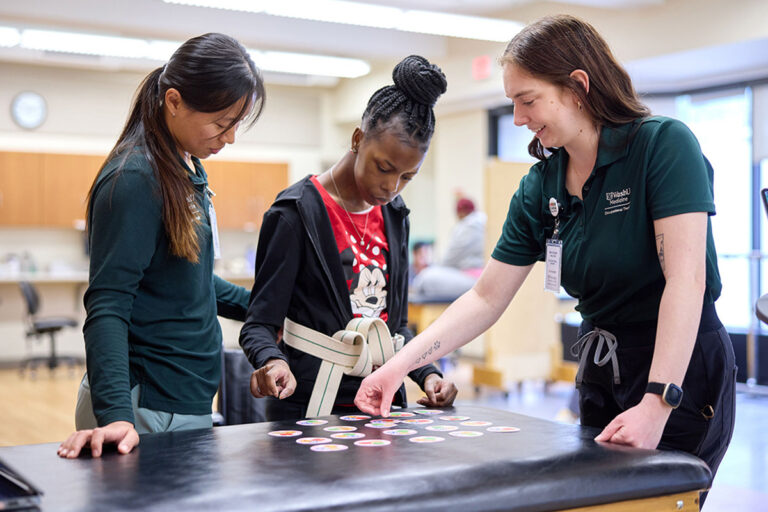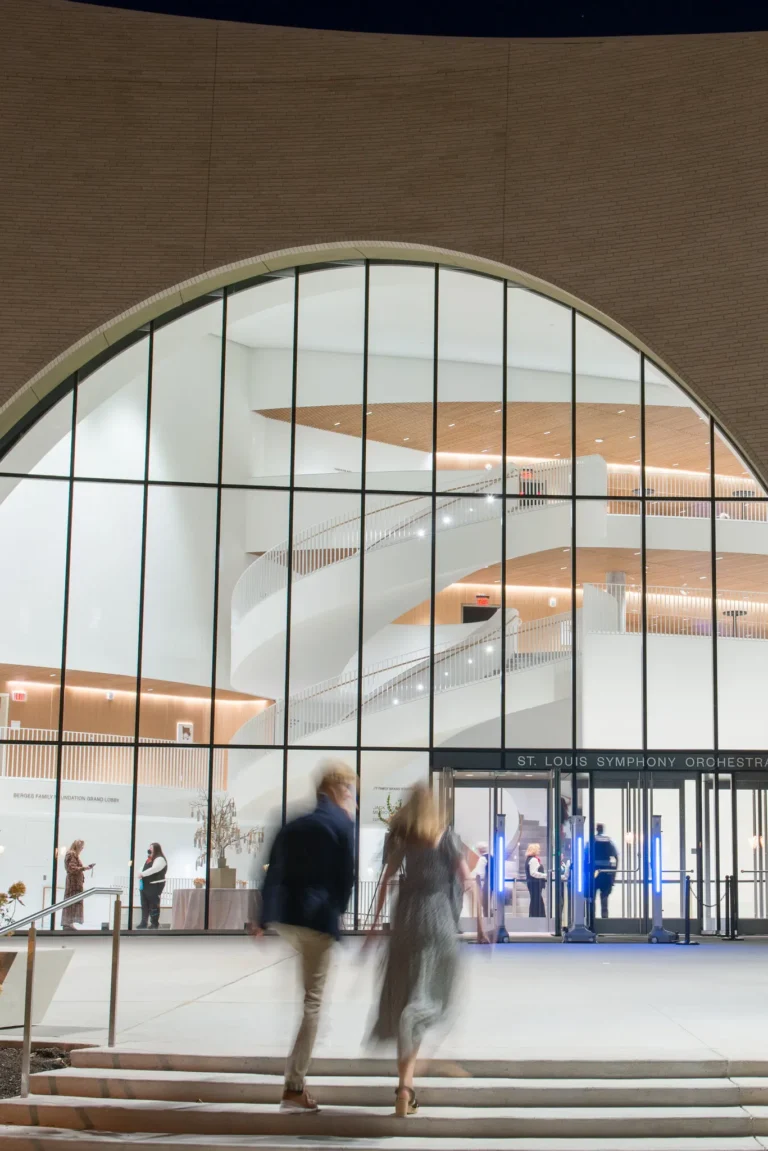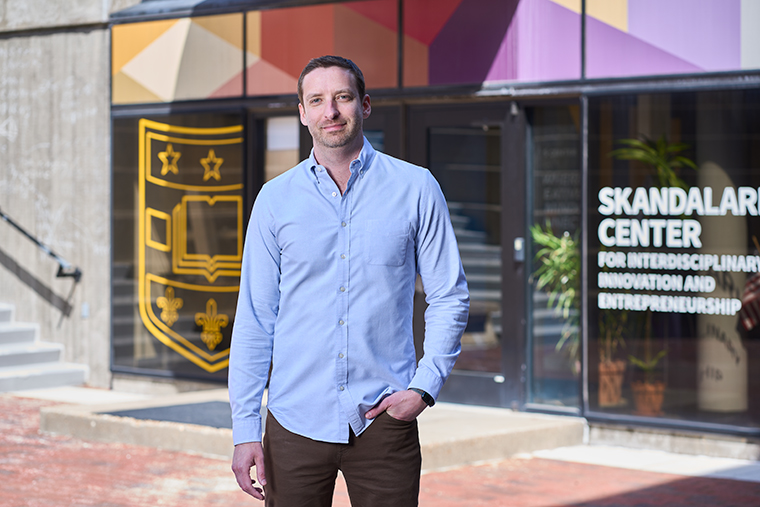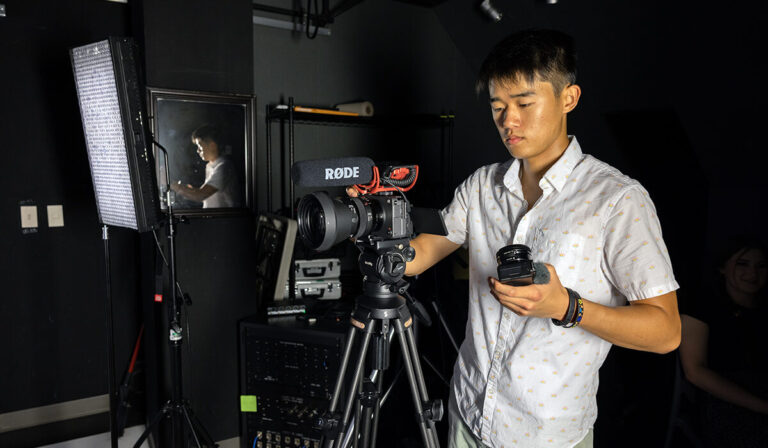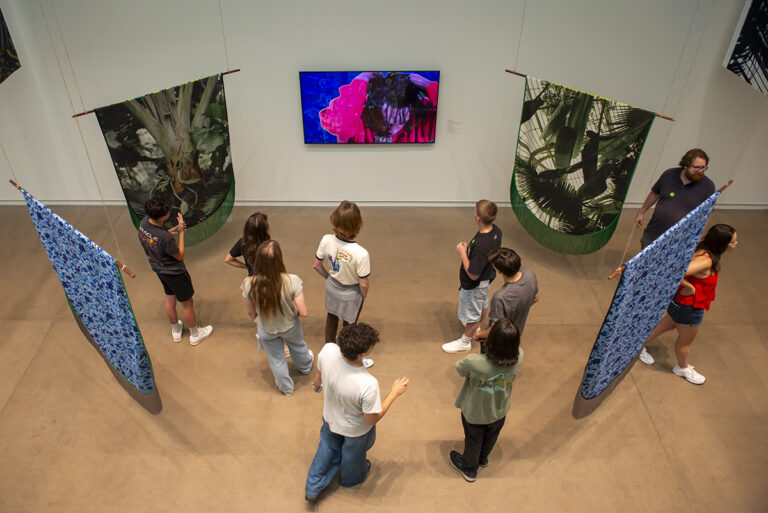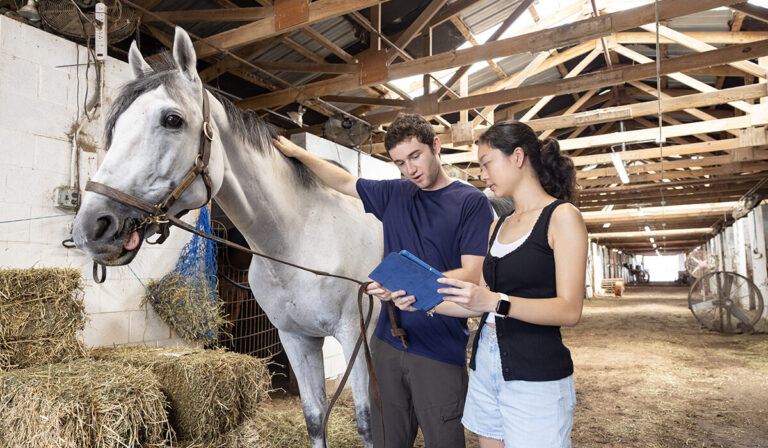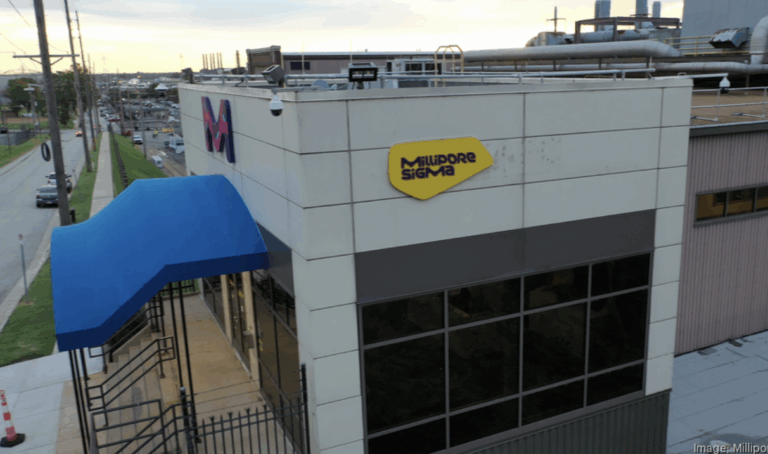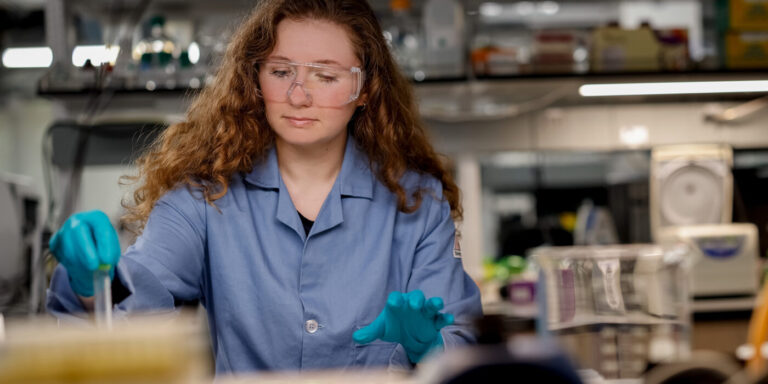WashU-sponsored Thursday Nights at the Museum celebrate St. Louis
Hosted at the Missouri History Museum and sponsored by Washington University in St. Louis, this free weekly series invites families and community members to explore the vibrant culture and history of St. Louis. Each Thursday evening begins at 5 p.m. with children’s activities, local food and drink, and interactive exhibits, followed by featured programming such […]
WashU project to analyze environmental health of St. Louis neighborhoods impacted by tornado
In the months following the tornadoes that struck several St. Louis neighborhoods, Washington University researchers have been working alongside community partners to better understand the environmental health impacts facing residents. Through the Environmental Health Initiative, teams are conducting neighborhood walkthroughs, listening sessions, and field assessments to identify concerns such as mold, debris exposure, and air-quality […]
Together, WashU Medicine MD, OT, PT students treat patients at Pro Bono Health Clinic
Student-led, patient-first. At the WashU Medicine Pro Bono Health Clinic, medical, occupational therapy and physical therapy students team up to provide much-needed care to uninsured community members in the St. Louis area.
A Reborn Concert Hall Provides a Lift for St. Louis at an Uneasy Time
Powell Hall has entered a bold new chapter. With the unveiling of the Jack C. Taylor Music Center, the St. Louis Symphony Orchestra has completed a $140 million renovation and 64,000-square-foot expansion—modernizing backstage and rehearsal spaces while preserving the hall’s iconic acoustics and historic ambiance. Read the New York Times story here.
Lighting a fire: Mark Sawyier and his tech company, Bonfyre, call St. Louis home
Mark Sawyier, AB ’07, didn’t know entrepreneurship would be in his future when he came to WashU. It arrived quickly. Sawyier was only a sophomore when he launched MovingOffCampus.com with a classmate in 2004. The site began by helping St. Louis–area college students find off-campus apartments, then expanded to multiple states. Sawyier subsequently co-launched Bonfyre, the St. Louis–based company he runs today as CEO.
Career Catalysts: WashU’s Skandalaris Center connects students to startups
When he was getting started at Washington University in St. Louis, Olin Business School student Joel Shin never imagined he would pursue nonprofit work. His ultimate aspiration was finding a job that provided for his family — a goal he believed was synonymous with pursuing work in the corporate sector. But his perspective has changed. Shin has worked as a summer intern for the Aspirations Network, a nonprofit that empowers youth through research and educational programming. The job allows him to combine his business acumen with his passion for film to make a difference in the St. Louis community.
From Aristotle to AI: WashU offers summer philosophy program for local high school students
WashU’s Allan Hazlett, a professor of philosophy in Arts & Sciences, has introduced the Summer Philosophy Academy, a free one-week program for high school students curious about philosophy — no prior knowledge of Aristotle or Kant required. Through lectures, discussions and field trips with WashU philosophy faculty and students, participants explore urgent ethical and philosophical questions about political polarization, artificial intelligence (AI), social media and other contemporary topics.
Career Catalysts: WashU stipends fund internships, fuel professional growth
WashU rising senior Fiona Sun is participating in the St. Louis Internship Program for Biomedical Engineering, one of several WashU programs that funds meaningful career experiences at St. Louis-based startups, businesses and nonprofits. The BME initiative provides interns a $6,800 summer stipend and hosts panels, tours and networking events. Many internship alumni have started their careers in St. Louis.
Life science giant MilliporeSigma deepens ties with WashU, to advance research and talent pipeline
MilliporeSigma has signed an agreement with Washington University to extend and expand their long-running collaboration on scientific research and commercialization. The company, which is the U.S. and Canadian life science business of Germany’s Merck KGaA, inked a nonbinding memorandum of understanding with WashU that builds on over 90 years of partnership between the two, officials said Thursday.
WashU, MilliporeSigma sign collaboration agreement
A project that could help scientists identify novel ways to fight disease is one of the research efforts that will get a significant boost under a new collaboration agreement that Washington University in St. Louis has signed with leading science and technology company MilliporeSigma. Together, MilliporeSigma and WashU aim to accelerate the transition from lab discoveries to clinical applications and help eventually bring life-saving therapies to patients faster.
